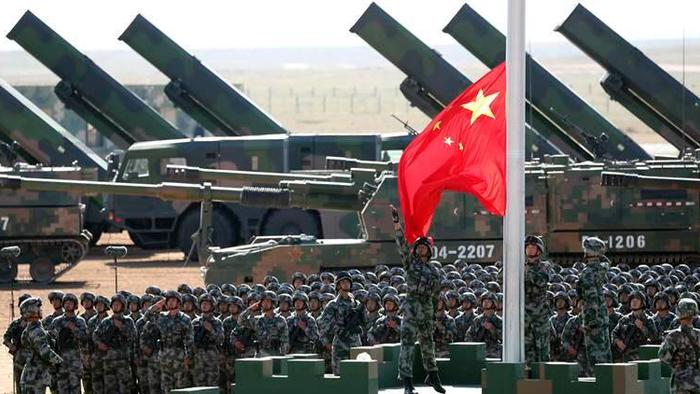China's New Defense Law Gives Military More Control Of War Powers
Authored by Dave DeCamp via AntiWar.com,
A new amendment to China’s defense law gives more control of the military to Beijing’s Central Military Commission (CMC), a defense body that oversees the People’s Liberation Army (PLA) and is chaired by President Xi Jinping.
The amendment came into effect on January 1st and weakened the role of China’s State Council, the country’s cabinet, in formulating military policy. According to The South China Morning Post, the new legislation adds "disruption" and "development interests" as grounds for the deployment of troops. President Xi Jinping visits the Central Military Commission in 2017, via AP.
Since CMC’s leadership is made up of China’s military brass, the new amendment gives more control of war powers to the PLA. Zeng Zhiping, a military law expert and former PLA colonel, explained to the Post how the new amendment works.
"The CMC is now formally in charge of making national defense policy and principles, while the State Council becomes a mere implementing agency to provide support to the military," Zeng said.
And further according to South China Morning Post:
The legislation also specifically stresses the need to build a nationwide coordination mechanism for the mobilization of state-owned and private enterprises to take part in research into new defense technologies covering conventional weapons, as well as the non-traditional domains of cybersecurity, space and electromagnetics.
He compared the new policy to other countries that have more civilian control over their militaries. "Even in the US, the civilian-led defense ministry plays a more important role than their military top brass, the joint chiefs of staff," he said.
The new law could allow China’s PLA to deploy more quickly to confront the US, whose warships are frequently sailing in waters near China’s coast. In 2020, the US stepped up its military presence in the region by increasing US Navy transits of the South China Sea and the Taiwan Strait. US military surveillance flights have also increased in the region. Tyler Durden Tue, 01/05/2021 - 21:25
http://dlvr.it/RpztKv

No comments:
Post a Comment